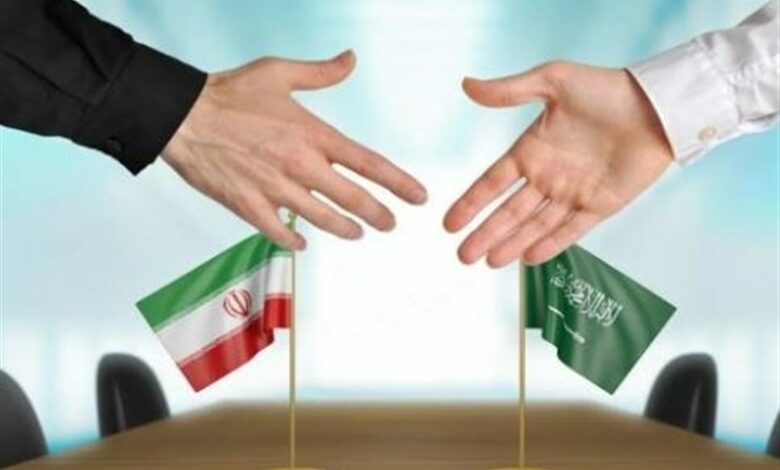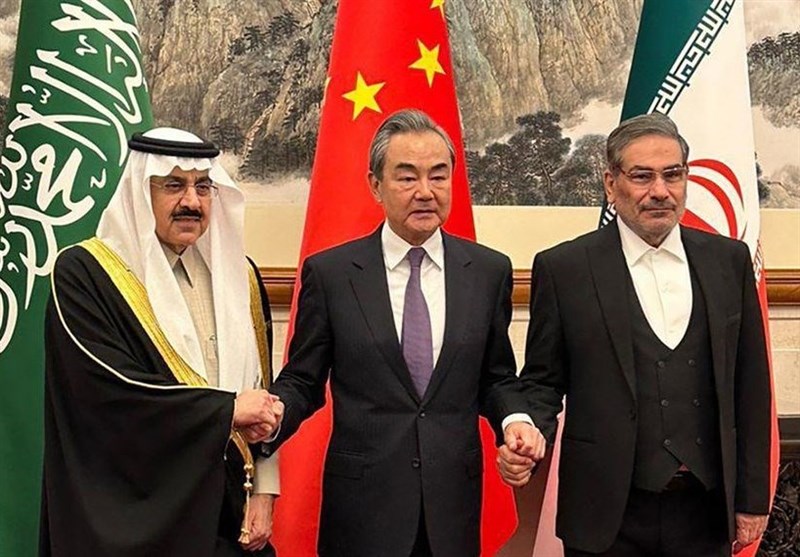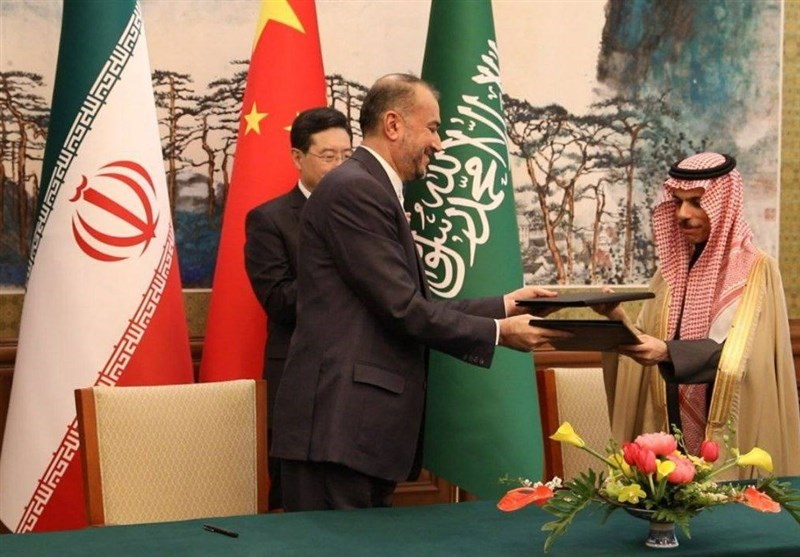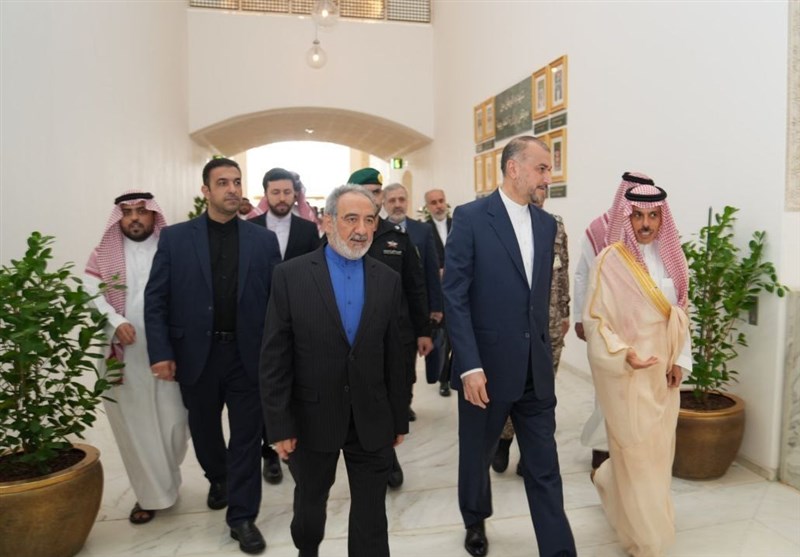The foundation of the nascent bilateral relationship on the basis of regional divisions is the achievement of the restoration of relations between Iran and Saudi Arabia

| A Persian Gulf expert said regarding the achievement of reviving relations between Iran and Saudi Arabia: I consider the establishment of a nascent bilateral relationship on the basis of regional divisions to be an achievement, and it seems that there is a serious effort on both sides, especially in Saudi Arabia, in this regard. |
According to the foreign policy reporter of Tasnim news agency, in It was on March 10, 2023 (March 19, 1401) that the news about the agreement between Iran and Saudi Arabia to resume relations between the two countries after 7 years was published in Beijing. We are now in the one year anniversary of this agreement, which is known as the Beijing Agreement, and important developments have occurred between the two countries in the last one year, the impact of which can be seen not only in the West Asian region, but also in the world.
Ali Shamkhani, the current secretary of Iran’s Supreme National Security Council, held intensive negotiations on Monday, March 15, 1401, with the aim of following up on the agreements of the president’s visit to Beijing, in order to finally resolve the Tehran Fimabin issues. And Riyadh started with its Saudi counterpart in China.
At the end of these negotiations, a tripartite statement was signed in Beijing by Shamkhani, Mosaed bin Mohammad Al-Aiban, Minister of Advisor and member of the Council of Ministers and National Security Advisor of Saudi Arabia and Wang Yi, member of the Political Office of the Central Committee of the Communist Party and head of the Office of the Central Committee of Foreign Affairs of the Party and member of the State Council of the People’s Republic of China, were issued. dir=”RTL” style=”text-align:justify”>In the text of this tripartite statement, it was stated that in response to the initiative of Xi Jinping, the President of the People’s Republic of China, in support of the expansion of relations between the Islamic Republic of Iran and the Kingdom of Saudi Arabia, The basis of the principle of good neighborliness and considering their agreement with the leaders of the two countries to host and support the dialogue between the Islamic Republic of Iran and the Kingdom of Saudi Arabia, as well as the desire of the two countries to resolve differences through dialogue and diplomacy based on fraternal ties and with Emphasizing the adherence of the two countries to the principles and goals of the United Nations Charter and the Organization of Islamic Cooperation Charter and international principles and procedures, the delegations of the Islamic Republic of Iran and the Kingdom of Saudi Arabia met and discussed with each other.
This tripartite statement also stated that as a result of the talks, the Islamic Republic of Iran and the Kingdom of Saudi Arabia agreed within a maximum of two months. , resume their diplomatic relations and reopen embassies and agencies, in addition to this, the two countries emphasize on respecting the sovereignty and not interfering in each other’s internal affairs in the context of the implementation of the security cooperation agreement signed on 28/01/2013 and They also agreed on the general agreement on economic, commercial, investment, technical, scientific, cultural, sports and youth cooperation, signed on 03/06/1377 solar.
It was a few months after this statement that Alireza Enaiti and Abdullah Al-Anzi, the ambassadors of the two countries, were sent to their places of service and the embassies were reopened. Also, the foreign ministers of the two countries made a trip to each other’s countries and took steps to deepen relations.
The revival of relations between Iran and Saudi Arabia, which play a very important role in their region, has had an impact on the region. According to some experts, this agreement accelerated de-escalation in the region. Kamran Karmi, an expert on Persian Gulf issues, in a conversation with Tasnim news agency, regarding the importance and impact of reviving Iran-Saudi relations at the regional level, said: The agreement between Iran and Saudi Arabia was part of the de-escalation that has been taking place in the region for a long time. had happened, especially the change in relations between Saudi Arabia and its allies, including Qatar, and it is a variable that affects the de-escalation formula at the regional level.
He added: It was after the restoration of diplomatic relations between Iran and Saudi Arabia that the speed of de-escalation at the regional level made a tremendous leap, including the discussion of relations between Iran and the UAE, Iran and Sudan, Saudi relations with Turkey and Turkey’s relations with Egypt. In general, it was affected by the issue of de-escalation and the spillover of the crisis in the Middle East after an all-encompassing tension, and it itself was an accelerating factor for the broader de-escalation project at the level of the Middle East region. It is in this sense that the agreement between Iran and Saudi Arabia and its weight at the regional level are clearly defined. Karmi further said: Most of the actors after the uprisings The Islamic Awakening entered widespread tensions, and even Iran and Saudi Arabia were on the brink of tension with those Aramco explosions, Saudi Arabia’s association with Trump’s maximum pressure campaign and issues like that had put the Middle East on an explosive level. This re-evaluation or readjustment of the patterns of friendship and enmity in the Middle East region is perhaps one of the most important achievements of this agreement, which can have an impact on the perception of other smaller actors or actors who still have some considerations and are more vulnerable.
This Persian Gulf expert stated: This agreement is part of a process in which regional actors came to the conclusion that enmity, competition and pervasive tension cannot serve those interests. The supply of actors is slow and the actors have practically nothing except erosion of forces, increase in costs and vulnerability. Even if we want to implement the experience of Islamic awakening on paper for the actors, I think none of these actors have become hegemons to marginalize other actors, nor have they been able to fulfill their own interests in the way that was defined at the beginning of the crisis. give These losses that were noticed by the actors have been effective in the process of de-escalation and strengthening of de-escalation.
He added: I consider the achievement of the one-year agreement between Iran and Saudi Arabia to be the foundation of a nascent bilateral relationship on the basis of regional divisions, which seems to show serious interest on both sides, especially in Saudi Arabia. With the country’s focus on giving priority to the economy with the perspective document and multilateralism at the core of foreign policy, it makes sense for China to host the agreement. In fact, it shows that Saudi Arabia no longer wants to put all its eggs in the basket of the United States and has realized the international macro-impact that the new order is a multilateralist order in which Iran can be defined as a partner instead of being defined as an enemy.
In response to the question of what political leaders of the two countries, this regional expert He explained: In my opinion, we have four crises or tensions in the current environment; Arash gas field was the host of football games, which at one point became very sensitive, the attacks of Yemen in the Red Sea and the issue of Hajj. These show that there are still unresolved issues in this fledgling relationship, but they could not create serious disturbances in the relationship, contrary to popular opinion. By maintaining the disturbances, the two countries showed that although they pay attention to these issues at a slow speed and with great caution, they have the understanding to prevent the variables from causing serious shocks to the principle of the relationship.
He stated: Although this relationship is nascent and undergoing crisis, and the centers of regional tension are prominent in it and play a role, but the two countries have a broader understanding of the experience of the last decade and Especially the vulnerabilities at this stage prevented the variables from challenging the relationships at least in the current situation. This was an important experience in a year of agreement between Iran and Saudi Arabia, which, despite the optimists and pessimists, showed that this time the focus of the decision makers of the two countries is very serious and they are going to shape a new page in bilateral relations.
Karami said about the future and prospects of relations between the two countries: With this change of priorities in the domestic and foreign policy of Saudi Arabia, it is a very important and serious issue to discuss in this regard. do. In the domestic arena, after the vision document and giving priority to the economy, tourism and issues of this kind that are emphasized in the Saudi 2030 document, it cannot be achieved except with a regional stability and multilateralism which has shown itself in Beijing’s mediation. He went somewhere. That is, the Saudis themselves believe that the main priority that we defined for ourselves is not possible except with a stable Middle East. Therefore, in this stable Middle East, Iran can no longer be defined as an enemy and Iran can be a competitor or even a partner.
He added: In my opinion, this change of orientation in Saudi foreign policy is a new and important issue that we should mention. The Saudis no longer want to see their foreign policy subject to bipartisanship in the United States. They are looking to get rid of the trunk of polarity and those struggling coalitions that have to be defined in a bloc. Diversification of the government’s income is not possible except through a pluralism in foreign policy, where the role of China and Russia becomes stronger for Saudi Arabia, parallel to America.
end of message/
| © | Webangah News Hub has translated this news from the source of Tasnim News Agency |





